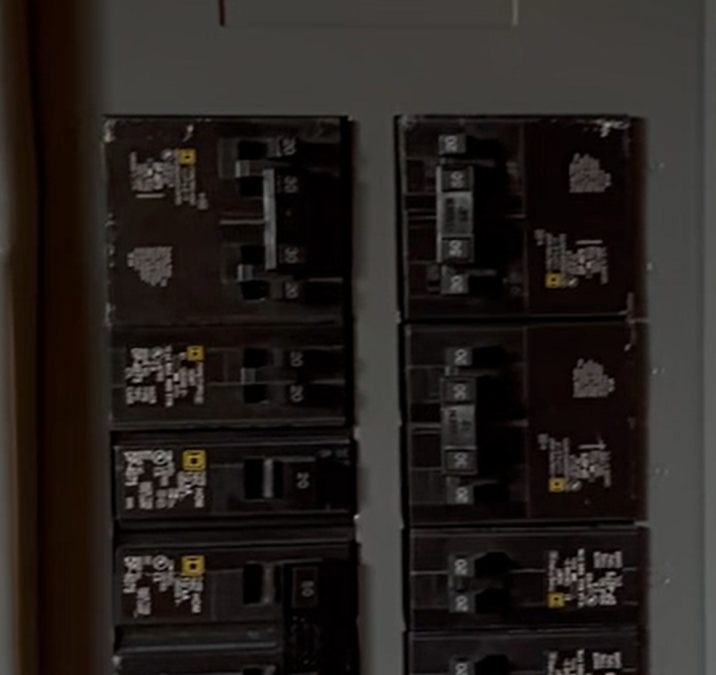Is Your Electrical Panel Labeled and Up to Date?
- Make sure each breaker is labeled correctly (lights, appliances, rooms, etc.)
- Update your panel if it’s old or overloaded
- Have a licensed professional handle any changes or upgrades
Why Properly Labeled Electrical Panels Are So Important
When it comes to home safety and functionality, the electrical panel is one of the most critical yet overlooked components in the entire house. Tucked away in a basement, garage, or utility room, this panel acts as the central hub for distributing power throughout the home. Each switch, called a breaker, controls electricity to specific circuits—outlets, lights, appliances, and more.
While many homeowners rarely think about their electrical panel, there’s one detail that makes all the difference in safety and convenience: accurate labeling. Ensuring that every breaker is clearly marked by a licensed electrician is far more important than it may seem at first glance.
Safety First: Quick Response in Emergencies
Imagine smelling smoke or hearing a strange buzzing sound coming from a particular outlet. In that moment, you don’t want to guess which breaker to flip. A clearly labeled panel allows you to cut power instantly to the correct area, potentially preventing an electrical fire or further damage. If labels are missing or inaccurate, precious time can be wasted, and mistakes can put you or others at risk.
Convenience in Everyday Life
Even outside emergencies, labeling matters. Need to change out a light fixture? Install a new outlet? Upgrade an appliance? Knowing exactly which breaker to turn off makes the process safer and faster for both homeowners and electricians. Without labels, it becomes a guessing game of trial and error—something that can be frustrating and even dangerous.
Code Compliance and Professional Standards
Electrical codes exist for a reason: to protect property and lives. In most areas, labeling your electrical panel is not just a recommendation, it’s a requirement. When an electrician installs or services a panel, they should provide clear, durable, and legible labels. This helps ensure that anyone working on the system in the future—whether another professional or the homeowner—has the information needed to operate safely.
Long-Term Peace of Mind
Homes change over time. Circuits get added, remodels shift the way outlets and lights are wired, and new appliances are installed. If labeling isn’t updated during these changes, a panel can quickly become confusing and unreliable. A properly labeled electrical panel acts as a “map” to your home’s power system. It’s a small detail that pays off in peace of mind, efficiency, and safety.
Why You Should Leave It to the Professionals
Some homeowners try to label panels themselves by flipping breakers until they figure out which lights or outlets turn off. While this can work, it’s not always accurate—and can be dangerous without the right knowledge. A licensed electrician has the tools and expertise to test circuits properly and create an accurate panel schedule. This not only ensures safety but also makes sure your home remains compliant with electrical codes.
The Bottom Line
A well-labeled electrical panel may not be flashy, but it’s one of the most important safety features in any home. It’s the roadmap that tells you exactly where power is flowing, making it essential during emergencies, upgrades, or repairs. If your panel is unlabeled, poorly labeled, or outdated, don’t put it off—have an electrician inspect and label it properly.
A little bit of organization today could prevent big problems tomorrow.

Steve Vacha
President / Inspector
EMAIL STEVE
(402) 660-9988
Steve Vacha brings decades of expertise to home inspections, having started in the field in 1996 when the industry was still in its infancy. A certified ASHI inspector, Steve founded Home Standards in 2008, growing it into one of the most trusted inspection companies in the Midwest.
Originally from Prairie Center, Nebraska, Steve has called Omaha home for over 40 years. A former juggler, storyteller, and acrobat with a traveling circus, he adds a unique flair to his background. When he’s not inspecting homes, Steve competes in triathlons, staying fit for the physical demands of his profession.


